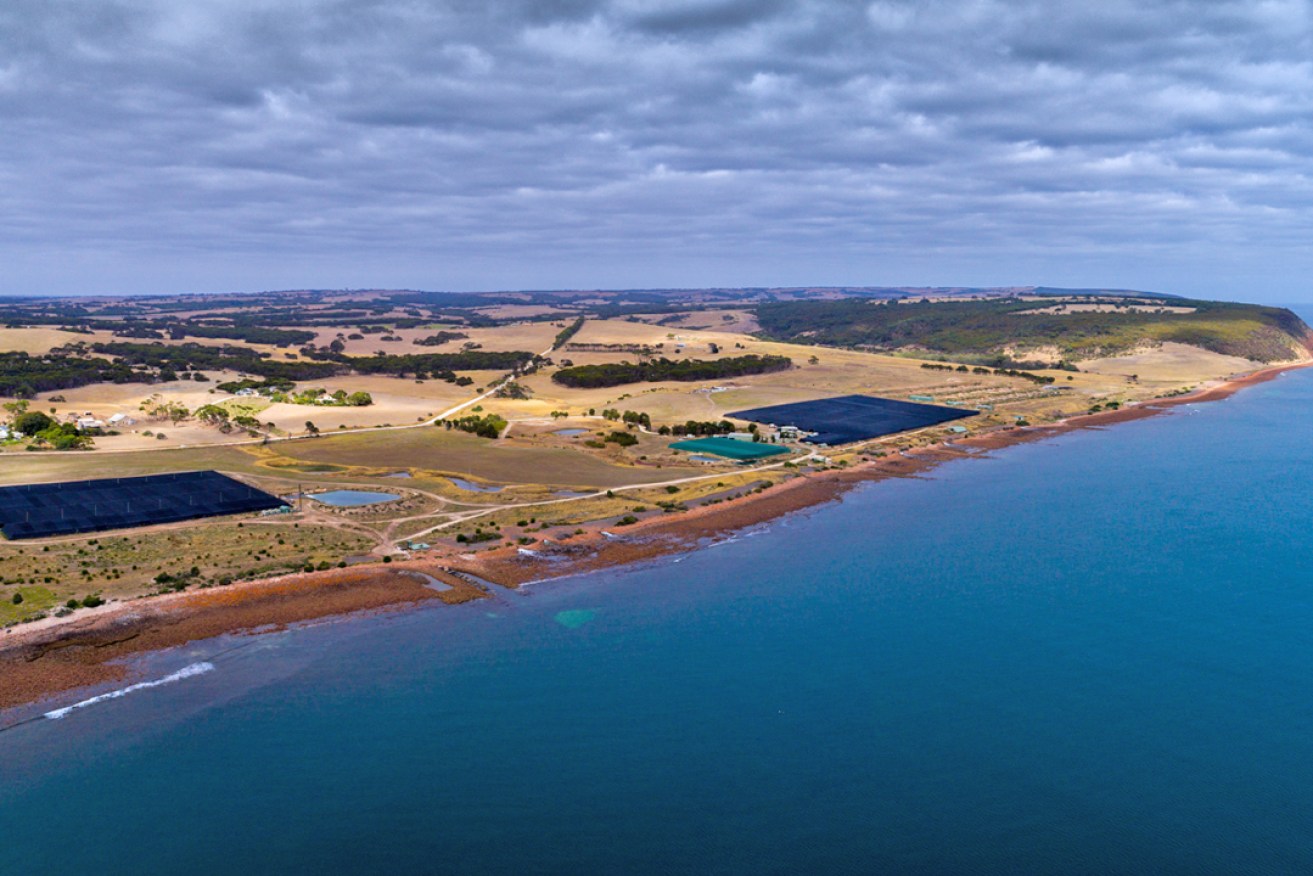KI aquaculture expansion back on after timber port rejection
Seafood company Yumbah Aquaculture is pushing ahead with a multi-million dollar expansion plan at its Kangaroo Island abalone farm in the wake of a State Government decision to reject a timber port planned next door to its Smith Bay site.


An aerial view of Yumbah Aquaculture's Smith Bay site on Kangaroo Island.
The Adelaide-headquartered company yesterday announced it had bought a historic grazing and aquaculture property, Moonta Park, adjacent to its abalone farm, which doubled its land holdings at Smith Bay on the island’s north coast.
Yumbah has also called for Expressions of Interest from specialist firms to work with it to develop a masterplan for the Smith Bay site.
The masterplan will include a four-fold annual production increase to 600 tonnes; an aqua-tourism venture with a state-of-the-art ‘cellar door’ to showcase KI seafood; and accommodation for tourists, visiting staff and researchers.
Yumbah Aquaculture has been in Smith Bay for more than 20 years and grows green lip abalone, predominantly for export.
However, its future on the site has been unclear since Kangaroo Island Plantation Timber was given major project status to build a $40 million port at Smith Bay in 2017.
That plan was rejected by State Planning Minister Vickie Chapman last month due to the potential for long-term environmental damage, impact on local businesses and the island’s character.
KIPT now plans to revert 18,696 hectares of its land to agriculture – a decision that will involve uprooting and burning about 14,500 hectares of pine and blue gum plantations.
Last year Yumbah flagged a multi-million-dollar expansion of its own at Smith Bay but only if the KIPT port project did not go ahead.
Chief executive, David Wood, said the wharf and related on-land activity had for more than five years loomed large over Yumbah KI.
“We wanted to expand our operations, but couldn’t due to the risk of the wharf on our viability. With that uncertainty cleared, I’m very happy to say we’re moving at pace to get back to growth on KI,” he said.
This has begun with immediate upgrades of pumping equipment to remediate long-standing issues and allow for increased future production.
Wood said the multi-million dollar investment in KI would support Yumbah’s expansion.
“But the mindset we bring to growth starts with our belief that we have a responsibility to secure and preserve the environmental and social values of the site and the Island with a focus on responsible and sustainable development.”
Masterplanning expressions of interest are open now, with a shortlist of providers expected before the end of September.
Yumbah Aquaculture bought Tasmanian oyster farming business Cameron of Tasmania in July in a bid to position itself to become one of Australia’s largest shellfish producers.
Headquartered in Wingfield where it has a processing plant, Yumbah also has an abalone farm and oyster hatchery in Port Lincoln, an abalone farm near Portland and a mussel operation also in Victoria.
The company’s association with Cameron of Tasmania began in 2016 when the two entered a joint venture to establish the Yumbah Hatchery at its Port Lincoln site following the outbreak of Pacific Oyster Mortality Syndrome (POMS) in Tasmania.
The outbreak led to a ban on bringing Tasmanian oyster material into SA, which threatened to derail the local industry as about 80 per cent of oyster spat had previously been brought in from the island.
The Port Lincoln joint venture now provides two-thirds of SA’s oyster spat.




